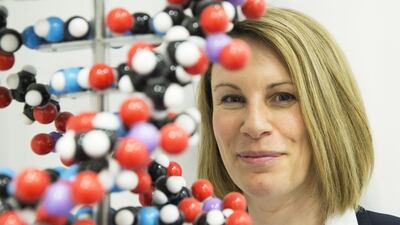The large-scale genome projects that are taking place around the world raise various ethical issues, which most people have never had to confront before.
How much would you want to know about conditions that you are predisposed to? Given that we have 20,000-plus genes, how much should doctors tell people about the genes they have?
Just because we have a gene that is linked to cancers or heart diseases does not mean we will suffer from those illnesses. With that uncertainty, do we really want to know what is genetically possible?
Additionally, how might commercial companies, including insurers, treat the information arising from genome sequencing, if they had access to it? How would our health systems cope if there was a rush of genetic testing for conditions for which they currently have no treatments? Dr Anna Middleton is the lead social scientist at the Wellcome Genome Campus in Cambridge, UK and is working on projects that look at these questions and the public’s attitude to them.
Short, educational films on genetics are designed to provoke conversations in an informative, (and sometimes) amusing way.
They use clever graphics and animation to illustrate the scale of the issues and their importance. Here, Dr Middleton tells The National about her work.
How does your work help to educate the public about genomics?
I am currently working on two projects that are designed to engage the public with some of the social and ethical issues raised by genetics. These are very relevant in that genomic technology is on the verge of going mainstream. Apple has just signed a deal with Google-backed genomics company 23andMe, which will see 23andMe customers use their iPhones to share genetic data with researchers carrying out medical studies. However, the vast majority of the public don’t yet know what they need to know about genomics. My first project www.YourDNAYourSay.org looks at data sharing and concerns you may have about handing over all your data, through a detailed survey and nine short films. The second project www.genetube.org features short films about how to start a conversation with people who do not know anything about this.
Why do we need to gather and store genetic data from hundreds of thousands of people?
The only way that we will unpick the power of genetics is by having access to very large data sets. We need to analyse these to interpret the implications for both serious conditions and the less serious things. Having large data sets is particularly valuable for working out if something rare is significant or not.
What is the role of consumer facing companies such as 23andme, Apple and Fitbit in genomics?
These companies are often interested in the recreational testing of healthy people. What is interesting is how the public might respond to the data sets they produce. We don’t know if it is possible to improve your health through the collection of data, presumably people might change their gym workouts [for example] according to something they learn about their biology – but we don’t know if that is the case and whether it can be sustained for the long term.
Is there a tension between the commercialisation of the data and the ambitions of public health programmes like the 100,000 genomes project?
The only way to benefit human kind is if we gather the data but where data gathering is led by commercial organisations there is a real tension there. The question is are we all in this together to improve human kind or not? If we are, then we should be making all this data shareable but it is more personal to you than an iris scan or a fingerprint. However, our fear over the big ethical questions should not scare us off the possibilities that widespread genome sequencing brings. Scientists and healthcare workers are working to cut across the barriers around the world, to make data sharing possible, across the profit and non-profit worlds. The key is for people to understand what it means and to make an informed decision about whether to participate or not. The challenge is to make the data sharing “safe” in ways that protect individuals – breaches of confidentiality must carry a firm penalty and what that looks like is still being worked out.
business@thenational.ae
Follow The National's Business section on Twitter

